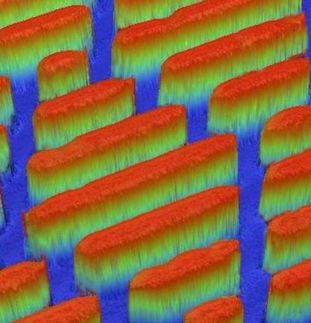"Superbugs" are killed by fresh air
NHS hospitals back air disinfection to fight MRSA, novovirus, C. diff and E.coli
Advertisement
It has long been known that superbugs cannot survive outdoors; they are destroyed by the germ-killing properties of fresh-air. However, in enclosed spaces like hospital wards, surgeries and offices, these germs persist and, until now, there has been no safe and easy way to kill them. Scientists identified the germ killing constituents of fresh air as chemicals called hydroxyl radicals. Outdoors these radicals are produced by the reaction of ozone and olefins (the natural scent of flowers and plants). British scientists and engineers have created a new device, the "AD", which can generate these hydroxyl radicals in enclosed places, and in a way that is entirely safe to humans but which kills any air-borne bacteria and devices.
Sunderland Royal is one of a number of NHS hospitals beginning to use the "AD" as a central element of their response in the fight against air borne superbugs, including the drug resistant strain of organisms such as MRSA, C. difficile and E.coli. The AD is also being used to prevent the spread of novovirus, or "winter vomiting bug", which has so far affected over two million people this winter in Britain.
Tests conducted by the Health Protection Agency and other independent experts prove that a room heavily contaminated with pathogens is cleaned to below detectable levels within a matter of minutes, and unlike standard cleaning of surfaces the hydroxyl radicals continue to be just as effective in destroying superbugs even when an infected person or material subsequently enters the room.
Mike Heath, Managing Director of Mid-States Plc, manufacturer of the AD, said "We have developed a device that is economic, easy to use and can operate continuously in rooms full of people. The AD is the product of over 40 years of British research and we believe it can be instrumental in the battle to beat hospital acquired infection."






















































